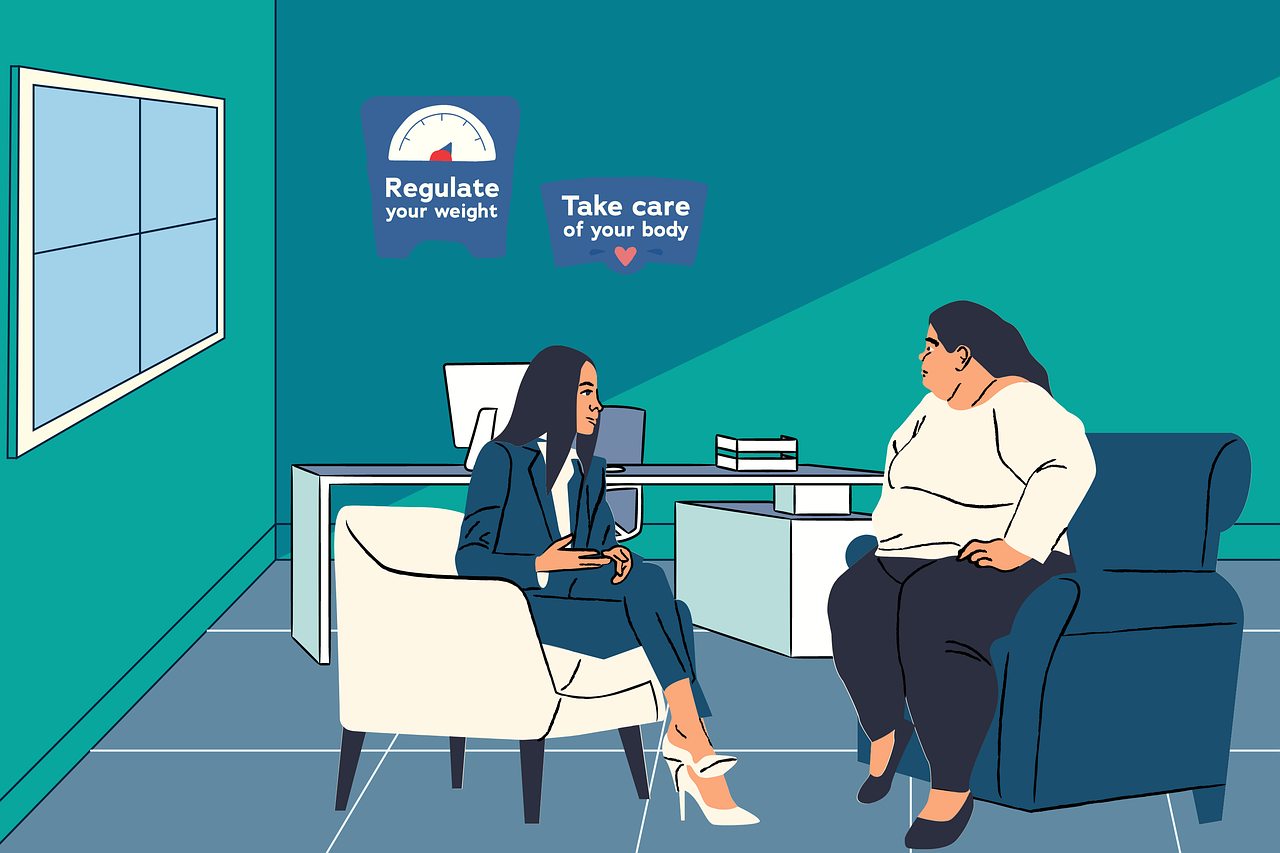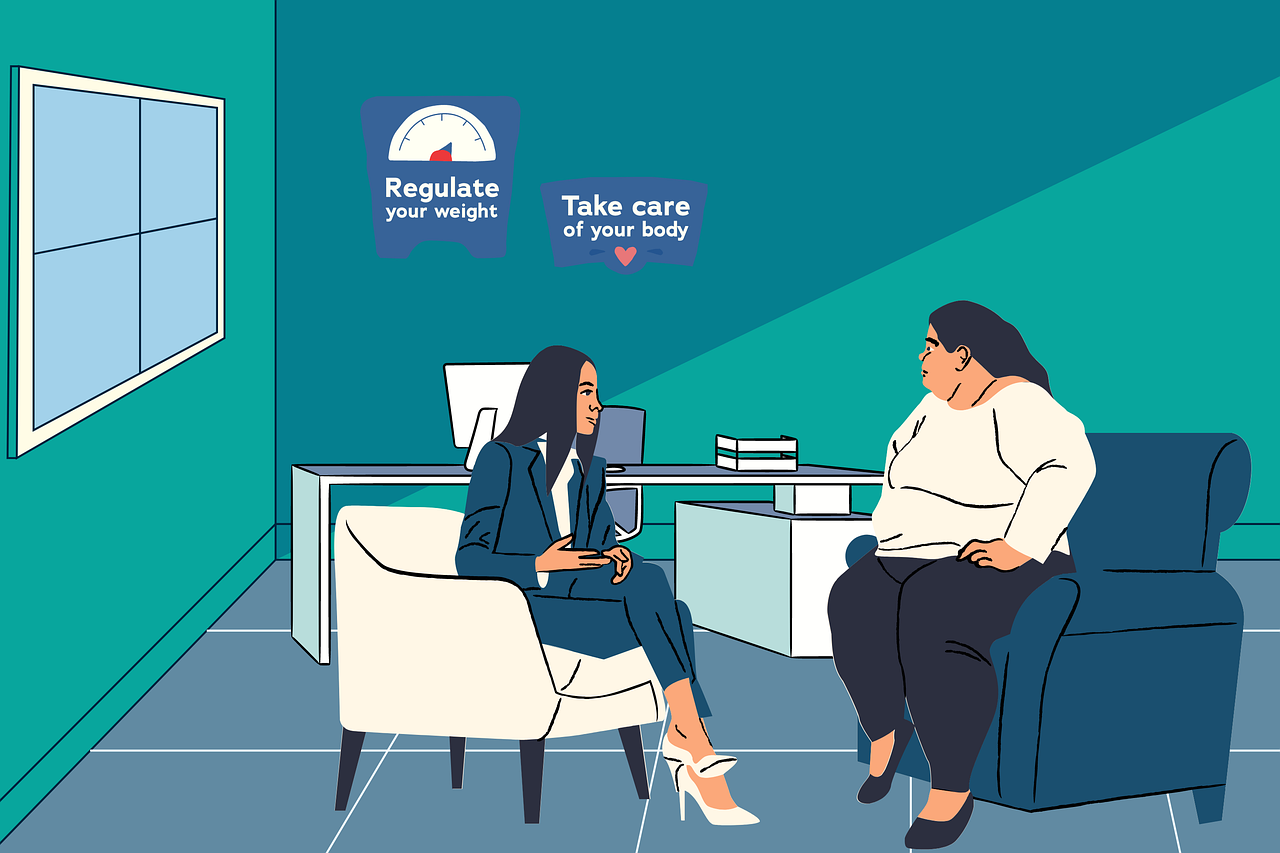Thinking about starting a new diet and wondering whether you need professional guidance? The question of whether or not to consult with a nutritionist or doctor before embarking on a new dietary journey may have crossed your mind. In this article, we’ll explore the importance of seeking expert advice, the potential benefits it can offer, and how it can contribute to a successful and sustainable dieting experience. So, before you take that first bite, let’s uncover why a little professional guidance might be just what you need for a healthy and effective transformation.
Overview
Understanding the importance of consulting with a nutritionist or doctor before starting a new diet
Embarking on a new diet can be exciting, but it’s important to approach it with caution and consideration for your health. Before you make any drastic changes to your eating habits, it is highly recommended that you consult with a nutritionist or doctor. These professionals can provide invaluable guidance tailored to your specific needs, ensuring that your diet is both safe and effective. In this article, we will explore the benefits of consulting with a nutritionist or doctor, the specific situations in which you should seek their advice, and how to choose the right expert for your needs.
Benefits of Consulting with a Nutritionist
Insightful guidance tailored to your specific needs
A nutritionist possesses expert knowledge in the field of nutrition and can offer personalized guidance based on your unique circumstances. Whether you have specific goals, dietary restrictions, or health concerns, a nutritionist can help you navigate the complexities of a new diet. They will take into account your individual needs, preferences, and lifestyle to develop a plan that is realistic and sustainable. By working with a nutritionist, you can ensure that your diet aligns with your goals and enhances your overall well-being.
Preventing nutrient deficiencies
One of the major advantages of consulting with a nutritionist is that they can help prevent nutrient deficiencies. When embarking on a new diet, there is a risk of inadvertently excluding certain essential nutrients from your meals. This can lead to deficiencies that can have adverse effects on your health. A nutritionist will assess your current intake of nutrients and design a diet plan that ensures you are getting all the essential vitamins, minerals, and macronutrients your body needs. By preventing deficiencies, you can optimize your health and avoid potential complications.
Managing existing health conditions
If you have any existing health conditions, it is crucial to consult with a nutritionist before starting a new diet. Certain medical conditions require specific dietary modifications to manage symptoms, improve outcomes, or enhance overall wellness. For example, individuals with diabetes may need to follow a diet that regulates blood sugar levels, while those with heart disease may require a diet low in saturated fat. A nutritionist can help you understand the relationship between your diet and your health condition, and provide guidance on how to optimize your nutrition to support your overall well-being.
Learning sustainable and healthy eating habits
In addition to providing guidance on specific diets, a nutritionist can teach you sustainable and healthy eating habits. Crash diets or extreme eating regimens may yield short-term results, but they are often unsustainable and can have adverse health effects in the long run. By working with a nutritionist, you can learn how to make healthier choices, establish a balanced relationship with food, and develop long-term habits that support your well-being. They can provide education on portion control, meal planning, and cooking techniques, empowering you to maintain a healthy diet even after reaching your goals.
Monitoring progress and making necessary adjustments
Consulting with a nutritionist allows for ongoing monitoring of your progress and the ability to make necessary adjustments. Your goals and dietary needs may change over time, and a nutritionist can provide the necessary guidance to ensure that your diet continues to meet your evolving requirements. By regularly assessing your progress and making adjustments when needed, you can stay on track and maximize the benefits of your new diet. A nutritionist can also help you identify any barriers or challenges you may encounter and provide strategies to overcome them, ensuring long-term success.

Benefits of Consulting with a Doctor
Addressing underlying health concerns
While a nutritionist can provide valuable guidance, there are situations where consulting with a doctor is necessary. If you have any underlying health concerns, it is crucial to seek advice from a medical professional before starting a new diet. A doctor can assess your overall health, take into account any pre-existing conditions, and help determine if the proposed diet is suitable for you. They can also address any potential risks and advise on how to proceed safely, ensuring that your health is not compromised in the process.
Determining suitability of the diet for your medical history
Your medical history plays a significant role in determining the suitability of a new diet. Certain medical conditions, such as kidney disease, liver disease, or gastrointestinal disorders, may require specific dietary restrictions or modifications. Consulting with a doctor helps ensure that any dietary changes you make are appropriate for your medical history. They can offer insight into potential interactions between your current medications and the proposed diet, and make adjustments as necessary to avoid any adverse effects on your health.
Identifying potential risks and side effects
One of the primary responsibilities of a doctor is to identify potential risks and side effects associated with a new diet. Some diets may promise quick and dramatic results, but they can also carry risks, such as nutrient deficiencies, imbalances, or even exacerbation of certain health conditions. A doctor can assess the feasibility and safety of the diet in question, taking into account your individual circumstances. Their medical expertise allows them to identify potential risks and side effects that may not be apparent to a nutritionist, ensuring that you approach your new diet with caution and in the best interest of your health.
Managing medication interactions
If you are taking any medications, it is essential to consult with a doctor before starting a new diet. Certain foods or dietary supplements can interact with medications and affect their effectiveness or safety. By discussing your medication regimen with a doctor, they can provide advice on potential interactions and offer guidance on how to manage them. This is particularly important for individuals with chronic diseases or those taking multiple medications, as the risk of interactions may be higher. Consulting with a doctor ensures that your new diet does not interfere with your medication regimen and maintains your overall well-being.
Ensuring overall well-being
Consulting with a doctor before starting a new diet ensures that your overall well-being is taken into consideration. They can assess your health holistically, taking into account not only your dietary needs but also your mental and emotional well-being. A doctor can help identify any underlying issues that may impact your ability to adhere to a new diet, such as emotional eating patterns or disordered eating behaviors. By addressing these concerns and providing appropriate support, a doctor can empower you to make positive changes while safeguarding your overall health and well-being.
When to Consult with a Nutritionist
Lack of knowledge in nutrition and dietary requirements
If you lack knowledge in nutrition and dietary requirements, it is highly recommended to consult with a nutritionist before starting a new diet. Nutrition is a complex field, and attempting to navigate it without guidance can lead to misinformation and potential harm. A nutritionist can educate you on the fundamentals of nutrition, explain the importance of different nutrients, and help you understand the dietary requirements necessary to achieve your goals. They can guide you in making informed decisions about your food choices, ensuring that your new diet is both safe and effective.
Specific goals or dietary restrictions
Having specific goals or dietary restrictions is another situation where consulting with a nutritionist is beneficial. Whether you are aiming to lose weight, build muscle, manage a chronic condition, or follow a specific dietary philosophy, a nutritionist can provide valuable guidance tailored to your needs. They can advise on the appropriate macronutrient ratios, food choices, and portion sizes to help you reach your goals while ensuring proper nutrition. For individuals with dietary restrictions, such as vegetarianism, veganism, or food allergies, a nutritionist can help create a balanced and diverse diet that meets all nutritional requirements.
Weight management challenges
If you struggle with weight management challenges, seeking the guidance of a nutritionist can be incredibly helpful. They can provide expert insight into the causes of weight gain, the relationship between food and energy balance, and strategies for sustainable weight loss or maintenance. A nutritionist can help you understand your individual metabolism, identify any underlying factors contributing to weight management challenges, and create a personalized plan that aligns with your goals. They will support you in developing healthy eating habits, implementing portion control techniques, and making lifestyle changes that promote long-term success.
Pre- and post-natal nutrition
Prenatal and postnatal nutrition is of utmost importance for both the mother’s health and the development of the baby. During pregnancy and breastfeeding, a woman’s nutritional needs change significantly, and it is crucial to consult with a nutritionist to ensure proper nourishment. A nutritionist can provide guidance on the specific nutrient requirements during these periods and help address any concerns or challenges that may arise. They can assist in managing common issues like morning sickness, gestational diabetes, or post-pregnancy weight loss, providing support and ensuring the health of both the mother and the baby.
Sports performance optimization
Athletes and individuals engaged in regular physical activities can benefit greatly from consulting with a nutritionist. Nutrition plays a vital role in athletic performance, energy levels, and recovery. A nutritionist can help optimize your diet to support your specific sport or physical activity goals. From determining ideal macronutrient ratios to advising on pre- and post-workout nutrition, a nutritionist can provide tailored guidance that enhances your performance, minimizes the risk of injury, and improves recovery time. They can work with you to develop a plan that ensures you are adequately fueling your body and maximizing your athletic potential.

When to Consult with a Doctor
Existing medical conditions or chronic diseases
If you have any existing medical conditions or chronic diseases, it is imperative to consult with a doctor before starting a new diet. Certain conditions may require dietary modifications or restrictions to effectively manage symptoms and support overall health. A doctor can assess the impact of a new diet on your medical condition and provide recommendations for dietary changes that are safe and appropriate. They will consider the potential interactions between your condition and the proposed diet, ensuring that your health is not compromised and that any necessary adjustments are made under their supervision.
Taking medications or undergoing treatment
Consulting with a doctor is essential if you are taking medications or undergoing any medical treatment. Different diets can have interactions with medications, affecting their efficacy or safety. It is crucial to discuss your medication regimen with a doctor to ensure that your new diet does not interfere with the effectiveness or side effects of your medications. They can provide advice on managing any potential interactions, make adjustments as needed, and monitor your progress closely to ensure that your health remains stable throughout the dietary changes.
Significant weight loss goals
If you have significant weight loss goals, it is advisable to consult with a doctor. Rapid or excessive weight loss can have negative health consequences and may not be sustainable in the long term. A doctor can help you set realistic weight loss goals and provide guidance on the most appropriate and safe way to achieve them. They can evaluate your overall health and monitor your progress to ensure that your weight loss efforts are effective and do not compromise your well-being. Additionally, a doctor can address any underlying factors contributing to weight gain or difficulties in losing weight, offering a holistic approach to your weight management journey.
Eating disorders or disordered eating patterns
Individuals with a history of eating disorders or disordered eating patterns require specialized support when it comes to dietary changes. It is crucial to consult with a doctor who has experience in managing eating disorders to ensure that any new diet is approached in a safe and healthy manner. A doctor can assess your mental and physical health, evaluate any potential triggers or concerns related to the proposed diet, and provide guidance on how to navigate the changes without compromising your recovery or well-being. They can work in conjunction with mental health professionals and nutritionists to create an integrated plan that supports your overall health and recovery.
Suspected food allergies or sensitivities
If you suspect that you have food allergies or sensitivities, it is important to consult with a doctor before making any dietary changes. A doctor can help determine the precise cause of your symptoms and assess the severity of your reaction. They can conduct tests to confirm or rule out specific allergies or sensitivities, and provide guidance on how to modify your diet accordingly. By working with a doctor, you can ensure that the necessary precautions are taken to avoid allergic reactions and that your diet provides the appropriate nutrients while eliminating any potential triggers.
Choosing the Right Nutritionist or Doctor
Credentials and qualifications
When selecting a nutritionist or doctor, it is crucial to consider their credentials and qualifications. Look for professionals who have relevant degrees, certifications, and licenses in their respective fields. A nutritionist should be a registered dietitian (RD) or hold an equivalent certification, ensuring that they have undergone rigorous education and training. Similarly, a doctor should have the appropriate medical degree and be licensed to practice medicine. By verifying their credentials, you can be confident in their expertise and ensure that they meet the necessary standards of practice.
Experience and specialized knowledge
In addition to credentials, experience and specialized knowledge are essential considerations when choosing a nutritionist or doctor. Look for professionals who have extensive experience working with individuals in situations similar to yours. For example, if you have a specific medical condition, seek a nutritionist or doctor who specializes in that area. They will have a deeper understanding of the challenges and considerations unique to your situation, allowing them to provide targeted guidance. Experience and specialized knowledge enable professionals to tailor their advice to your specific needs and enhance the effectiveness of their recommendations.
Compatibility and communication
Compatibility and effective communication are vital for a successful working relationship with a nutritionist or doctor. When choosing a professional, consider whether their approach aligns with your preferences and values. It is important to feel comfortable discussing personal information, asking questions, and expressing concerns openly. Look for professionals who are approachable, empathetic, and responsive in their communication style. A good fit in terms of personality and communication can facilitate a positive and productive relationship, ensuring that you receive the guidance and support you need throughout your dietary journey.
Referrals and recommendations
Asking for referrals and recommendations from trusted sources can help guide your decision-making process. Seek recommendations from friends, family, or healthcare providers who have worked with nutritionists or doctors in the past. They can provide valuable insights into the quality of care, level of expertise, and overall satisfaction with the professional. Online reviews and testimonials can also offer some guidance, although it is essential to approach them with a critical eye. By gathering referrals and recommendations, you can narrow down your options and make a more informed choice.
Affordability and insurance coverage
Lastly, consider the affordability and insurance coverage when choosing a nutritionist or doctor. Depending on your location and healthcare system, certain services may be covered by insurance, while others may require out-of-pocket payments. Understand the costs associated with consultations, follow-ups, and any additional services or tests that may be recommended. Take the time to explore your insurance coverage and determine whether the nutritionist or doctor you are considering accepts your insurance. By considering the financial aspects, you can make a decision that aligns with your budget and ensures that you can access the necessary support without incurring excessive expenses.

Preparing for the Consultation
Documenting your current diet and lifestyle
Before your consultation, it is helpful to document your current diet and lifestyle. This information will provide valuable insights to the nutritionist or doctor, enabling them to tailor their recommendations to your specific circumstances. Keep a food journal for a few days, noting down everything you eat and drink, as well as any snacks or meals consumed outside of your regular routine. Additionally, track your physical activity levels, sleeping patterns, and any relevant lifestyle factors, such as stress, medications, or supplements. By having a clear picture of your current habits, the nutritionist or doctor can better understand your baseline and make appropriate recommendations.
Tracking any symptoms or health concerns
In addition to documenting your diet and lifestyle, it is crucial to track any symptoms or health concerns you may be experiencing. Take note of any digestive issues, allergies, skin conditions, fatigue, or other symptoms that have been problematic for you. Detailing these symptoms and their frequency, duration, and intensity will help the nutritionist or doctor identify any potential underlying causes. It will also assist them in assessing the effectiveness of your new diet and making adjustments if needed. By tracking your symptoms, you provide valuable information that can contribute to the success of your consultation.
Making a list of questions and goals
To make the most of your consultation, prepare a list of questions and goals in advance. Consider what information you need to gather, what concerns you would like to address, and what specific goals you hope to achieve through dietary changes. This will ensure that you cover all relevant topics during the consultation and receive the answers and guidance you seek. Additionally, setting clear goals will allow the nutritionist or doctor to provide targeted recommendations and develop a plan that aligns with your aspirations. By being prepared, you can make the most of the limited time available during your consultation.
Gathering relevant medical records or test results
If you have any relevant medical records or test results, be sure to gather and bring them to your consultation. This includes any recent blood work, imaging results, or previous consultations related to your health or dietary concerns. These records provide important context for the nutritionist or doctor, allowing them to make more informed decisions and recommendations. If you do not have access to your medical records, inform the healthcare professional during your consultation, and they can guide you on how to obtain the necessary information. By providing comprehensive information, you enable the nutritionist or doctor to develop a thorough and personalized plan.
Understanding your own motivations and commitment
Lastly, take the time to understand your own motivations and level of commitment to making dietary changes. Assess your reasons for wanting to start a new diet and consider the level of effort and dedication you are willing to put in. Reflect on your expectations and understand that any significant dietary changes require time and effort to produce sustainable results. Be honest with yourself about your motivations and level of commitment, as this will help the nutritionist or doctor tailor their recommendations to your unique circumstances and support you effectively throughout your dietary journey.
During the Consultation
Sharing personal health history and goals
During your consultation, be prepared to share your personal health history and goals with the nutritionist or doctor. This includes information about any pre-existing medical conditions, surgeries, or hospitalizations, as well as a detailed account of your current health status. Communicate any specific goals or concerns you have regarding your diet and how you hope the proposed changes will improve your well-being. By providing this information, you allow the healthcare professional to gain a comprehensive understanding of your health and your aspirations, enabling them to develop recommendations that are tailored to your needs.
Discussing current eating habits and challenges
In addition to sharing your health history and goals, discuss your current eating habits and any challenges you may be facing. This includes information about your typical meal patterns, food preferences, snacking tendencies, and any known dietary deficiencies or excesses. Be honest about any emotional or psychological factors that impact your eating, such as stress, boredom, or emotional cravings. By openly discussing your eating habits and challenges, you give the nutritionist or doctor valuable insights into your relationship with food, allowing them to provide targeted strategies and support.
Determining the suitability of the diet in question
During the consultation, the nutritionist or doctor will assess the suitability of the diet in question based on your individual circumstances. They will evaluate whether the proposed diet aligns with your dietary requirements, health goals, and lifestyle. They may consider factors such as food preferences, cultural considerations, and practicality. If they identify any concerns or potential risks associated with the diet, they will discuss them with you and suggest alternative approaches or modifications, if necessary. This evaluation ensures that the diet is safe, effective, and tailored to your specific needs.
Collaborating on a personalized approach
A key aspect of the consultation is collaborating with the nutritionist or doctor on developing a personalized approach to your dietary changes. They will discuss potential strategies, interventions, and techniques that align with your goals and preferences. Emphasize your willingness to actively participate in the process and implement the recommended changes. Actively engage in the discussion, ask questions, and seek clarifications to ensure that you fully understand the recommendations and feel confident in implementing them. By actively participating and collaborating, you become an active participant in your own dietary journey, increasing the likelihood of success.
Establishing benchmarks for progress and follow-up
To monitor your progress effectively, the nutritionist or doctor will establish benchmarks at the end of your consultation. These benchmarks act as reference points to assess the effectiveness of the dietary changes and determine if any adjustments are necessary. Benchmarks may include weight measurements, blood work, or specific health markers relevant to your goals and medical history. Additionally, discuss the frequency and method of follow-up appointments to ensure ongoing support and guidance. Setting clear benchmarks and follow-up plans allows for structured monitoring of your progress and facilitates necessary adjustments to optimize your results.

After the Consultation
Implementing the recommended dietary changes
After your consultation, it is important to implement the recommended dietary changes as soon as possible. Review the recommendations provided by the nutritionist or doctor and create a plan to gradually transition to the new diet. Start by making small, manageable changes and gradually incorporate new foods and habits into your routine. Seek guidance from the professional if you have any questions or concerns during the implementation process. By taking action and making the recommended changes, you set yourself up for success and maximize the benefits of the consultation.
Monitoring progress and making adjustments as needed
Regularly monitoring your progress and making necessary adjustments is an essential part of the dietary journey. Keep track of your adherence to the new diet, as well as any changes in your overall health, well-being, and specific goals. If you encounter challenges or roadblocks, revisit the recommendations made during your consultation and consider seeking additional guidance from the nutritionist or doctor. They can provide support, answer your questions, and help navigate any complexities or difficulties that arise along the way. By proactively monitoring your progress and seeking guidance when needed, you can ensure that your new diet continues to align with your goals and needs.
Seeking ongoing support and guidance
After the initial consultation, it is beneficial to seek ongoing support and guidance from the nutritionist or doctor. They can provide continued education, answer your questions, address concerns, and offer motivation throughout your dietary journey. Regular check-ins, follow-up appointments, or even virtual support can help you stay on track and maintain your commitment to your new diet. By seeking ongoing support and guidance, you remain connected with the professional who understands your individual circumstances and can provide the personalized advice needed for long-term success.
Regularly reassessing goals and challenges
As you progress with your new diet, regularly reassess your goals and challenges to ensure that they remain aligned with your current situation. Goals may evolve over time, and challenges may arise unexpectedly. Schedule periodic self-evaluations to reflect on the effectiveness of your dietary changes, identify areas for improvement, and set new goals if necessary. Share these reflections and changes with the nutritionist or doctor during follow-up appointments, ensuring that your dietary plan continues to be relevant and effective. Regular reassessment allows for timely adjustments and helps maintain your motivation and commitment.
Maintaining open communication with the nutritionist or doctor
To fully benefit from the expertise and support of the nutritionist or doctor, it is crucial to maintain open communication throughout your dietary journey. Share any relevant updates or concerns promptly, keeping the professional informed about any changes to your health, lifestyle, or goals. If you have questions, reach out for clarification and guidance. Honest and open communication allows the nutritionist or doctor to provide targeted support and ensure that their recommendations are aligned with your current circumstances. By maintaining open communication, you foster a collaborative relationship that enhances the success of your new diet.
Conclusion
The decision to start a new diet is an important step towards improving your health and well-being. However, ensuring the safety and effectiveness of your dietary changes requires the guidance of a nutritionist or doctor. They possess the knowledge, expertise, and experience to tailor their advice to your unique needs, goals, and medical history. By consulting with a nutritionist, you can receive insightful guidance tailored to your specific needs, prevent nutrient deficiencies, manage existing health conditions, learn sustainable and healthy eating habits, and monitor progress effectively. Similarly, consulting with a doctor is crucial to address underlying health concerns, determine the suitability of the diet for your medical history, identify potential risks and side effects, manage medication interactions, and ensure overall well-being. By seeking professional advice, you empower yourself with the knowledge and support necessary for success. Consult with a nutritionist or doctor before embarking on a new diet and start your dietary journey on the right path.

